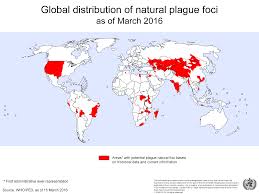
Introduction
Pneumonic plague, an infectious disease caused by the bacterium Yersinia pestis, remains an ongoing health concern worldwide. Although it is rare, recent outbreaks in certain regions have raised alarms about its potential for rapid spread and fatal consequences. Understanding pneumonic plague is crucial as it highlights the importance of public health preparedness and awareness.
Current Events and Recent Outbreaks
In 2023, health officials reported a small outbreak of pneumonic plague in Madagascar, particularly in the northern regions, which typically see sporadic cases during their annual plague season. The World Health Organization (WHO) confirmed that since August, several cases of pneumonic plague have been detected, alarming local health authorities. Measures are being taken to contain the infection, including vaccination campaigns, antibiotics treatments, and public awareness initiatives to educate the community about how to prevent transmission.
Pneumonic plague is distinct from the more common bubonic plague, manifesting primarily in the lungs and leading to severe respiratory symptoms. The disease is transmitted through respiratory droplets, making it especially contagious compared to other forms of plague. As such, containment is critical to prevent an outbreak similar to those witnessed in history.
Symptoms, Treatment, and Prevention
Initial symptoms of pneumonic plague include fever, head and body aches, and a rapid onset of pneumonia-like symptoms such as coughing and difficulty breathing. If not treated promptly, the disease can lead to severe respiratory distress and death. However, with early diagnosis and appropriate antibiotic treatment, the prognosis can improve significantly.
Preventative measures include public education about the disease, avoiding close contact with infected persons, and monitoring wildlife populations in affected areas, as many plague cases are linked to outbreaks from rodent populations. Plague is characterized by its sudden onset, and so early detection and treatment are vital in mitigating severe outcomes.
Conclusion and Significance
While pneumonic plague might not be as prominent in the global health landscape as it was in past centuries, it remains a significant concern, particularly in regions where it is endemic. The recent outbreak signals the necessity for global vigilance in disease monitoring, rapid response to infection, and effective public health strategies. For readers, awareness about pneumonic plague and understanding its implications can contribute to better preparedness and informed health decisions should similar outbreaks occur in the future.



